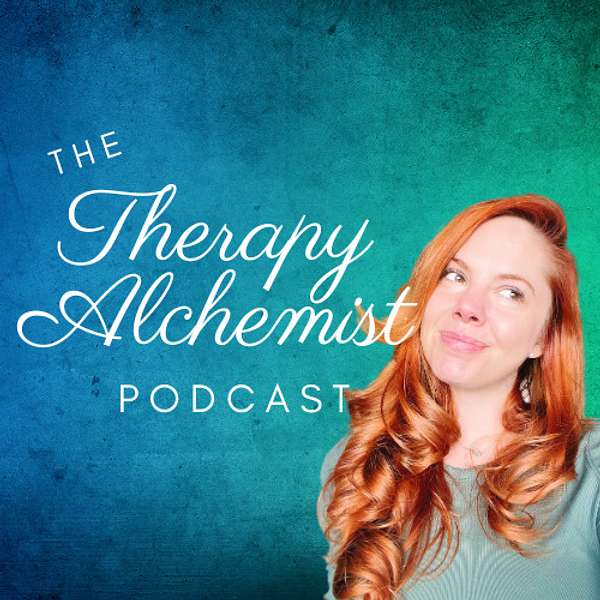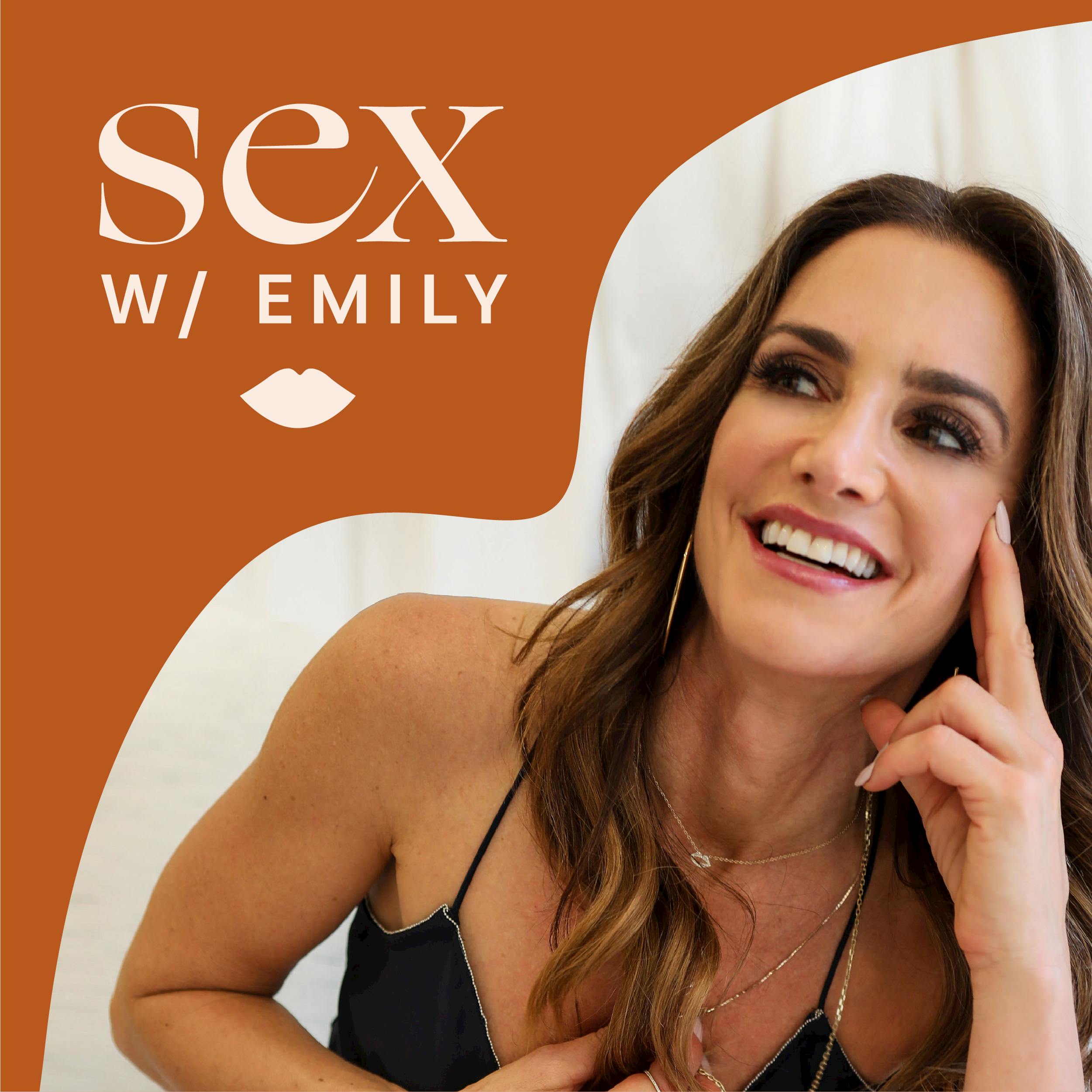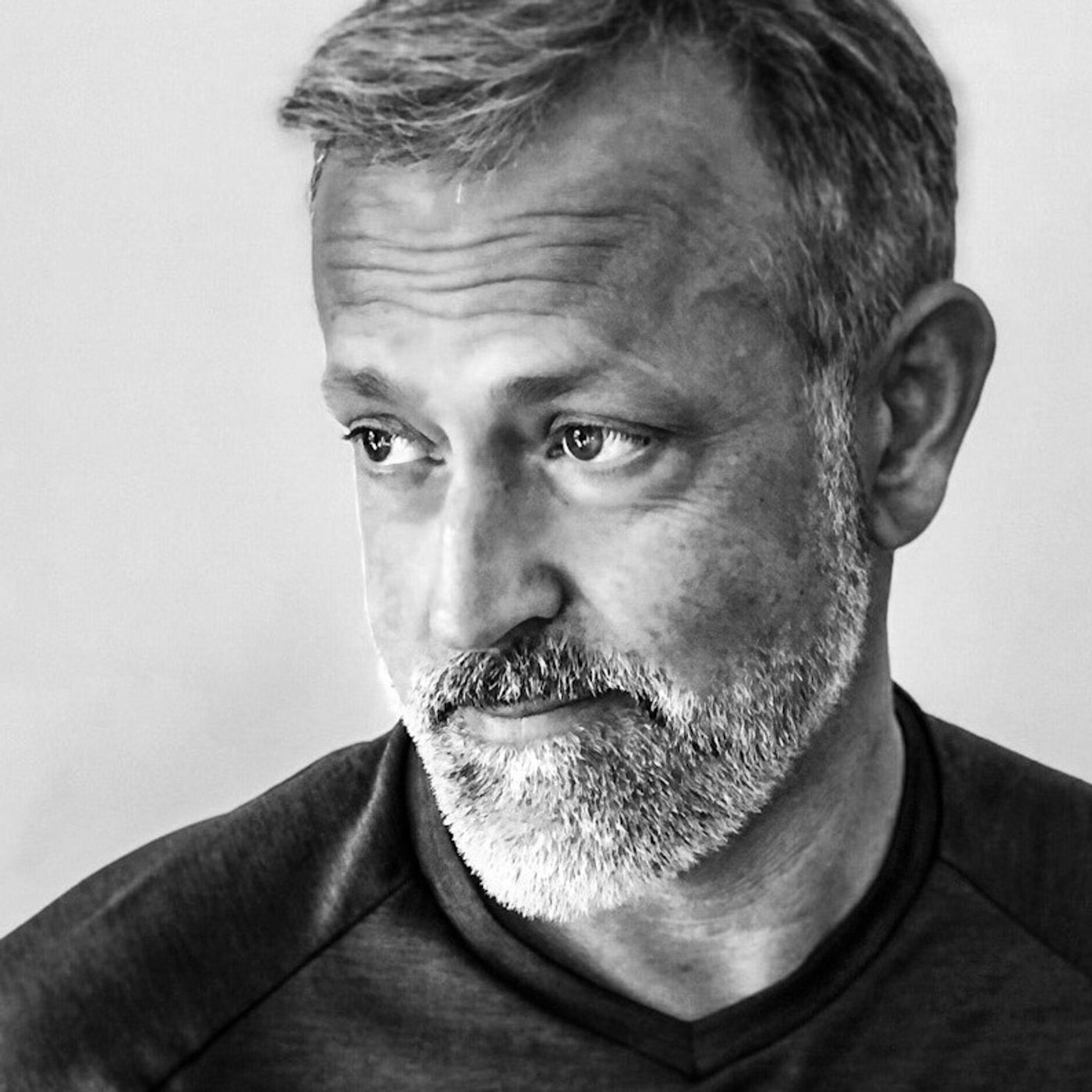
The Therapy Alchemist
Change is not just about the science and research. Mental health isn't just what we characterize as a disorder or not. It's also about the mystical ways in which we change and grow. Science can't study everything about our inner spirit/soul.
On this podcast, a Licensed Professional Counselor in Colorado & Oklahoma dives into the spaces that science cannot go. Discussing what ACTUAL growth and change look like. Filling in the gaps that the pop-psychology world misses, completely ignores, or sometimes shames. Plus some tips and tricks along the way to help you achieve your own personal legend.
The Therapy Alchemist
#21: Is Depression a Choice? an Adlerian Psychology Lens
In this episode, we dive deep into the controversial ideas of Alfred Adler, including the notion that trauma isn’t real and depression is a choice. We'll explore how interpersonal relationships influence our mental health, examine the benefits of staying depressed, and discuss the courage it takes to be happy. If you’ve ever felt stuck, this episode might help you understand why and what steps you can take to regain control over your happiness.
00:00 Introduction to the Therapy Alchemist Podcast
00:34 Exploring Adlerian Psychology
01:02 Depression as a Choice
02:08 Interpersonal Relationships and Mental Health
06:36 Personal Experiences with Anxiety
08:54 The Power of the Present Moment
10:40 Final Thoughts and Recommendations
Book: The Courage to Be Disliked - The Japanese Phenomenon That Shows You How to Change Your Life and Achieve Real Happiness by Ichiro Kishimi & Fumitake Koga
Instagram
TikTok
Facebook
LinkedIn
*This is not a substitute for therapy nor is it therapeutic advice. If you would like to find a therapist in your area check out psychologytoday.com, goodtherapy.org, or therapyden.com
Welcome to the Therapy Alchemist podcast. I'm your host, Katrina Austin, a licensed therapist. I'm here to talk not only about the science behind mental health, but the magical process of transformation. How much control do we really have over our diagnoses, traumas and happiness. I've just finished the book, the courage to be disliked. It's all about Adlerian psychology. According to Alfred Adler, our past doesn't dictate our present or future. Trauma is not a real thing. And depression is a choice. Okay. I know. I thought the same thing. You're probably feeling disgusted. Like Adler is somehow victim shaming or blaming you for all of your unhappiness. But. Let's get into it because this man has a point. Something I discovered early on in my counseling career is how depression specifically. Is a choice. This one is quite nuanced. So stay with me. When I sit with people in their depression. There is a stuckness. They can see the light. Even if they don't realize it. Because remember without darkness, we wouldn't know that light existed. They know happiness can be found otherwise they wouldn't crave it so desperately. But why do we say it's a choice? That seems super unfair. Cruel, even if they didn't want to be depressed, they would've just flipped a switch and stop the depression. Right. Yes exactly. They would have. But they don't because there is a benefit to staying depressed. Okay. Think of it this way. A young boy stays in his room, refusing to go out. He's too depressed to interact with friends or do anything he loves. He says that he can't, he stuck under the weight of resignation. So what could possibly be the benefit of him staying depressed? Well, if Adler's serious, correct. Then everything that we do is based around interpersonal problems. So this young boys, depression is completely revolving around other people. It may be that he is choosing depression because this is a one-time. When he gets attention from his parents, he feels seen when he disappears. It may be that he is terrified that if he goes out into the world to interact with his friends, then they might reject him. It might be that he hates himself because if he hates himself first. Then he can reject himself before others reject him. He is safe and his depression. Yes, it's uncomfortable, but it's not as uncomfortable as putting yourself out there and risking it all. So think of it this way. This boy believes that all interpersonal relationships are vertical. There's a hierarchy. He doesn't realize that we are all horizontal. In other words, it's like blue is not better than pink. They're just colors. There's no competition. The only ones who add competition to it are humans who are stuck in vertical relationships with others. So Adler argues that we should view each other as comrades. Though it's really hard to do, Especially here in America, where competition is our forte. Now you may say, what about depression around money and not being able to afford food? That's real. That has nothing to do with people. All right. Picture this. You are the only human ever. No human has ever existed before you and will ever exist after you. The concept of another human existing has never crossed your mind. Would you care about your weight then? Would you care about how much money you made? Would you be depressed or anxious? Why not. Well, because everything is interpersonal. Everything has a cost and a benefit when we have benefits from being upset about money. We stay upset. Even in the book, rich dad, poor dad. You can see the dichotomy of the poor dad's mindset versus a rich dad. Poor dad believes he must work his life away and save everything. The rich dad believes money is always coming. So he invests in never saves. What's the difference? Their interpretation of other people. The poor dad possibly stays poor because he's worried if he's too wealthy, then he will lose friends and trust and others, they will begin to use him for his money. He won't feel like you can relate to others anymore. Or maybe he worries that if he works harder, people fail and others will shame him. If he was the only man on the planet and somehow the stock market existed. He would invest with no hesitation, right? Because what does he have to lose? There was no one there to witness him losing money or gaining money. All of it is about others' perception of us. And so it makes me wonder maybe confidence is just a reinforced symptom of vertical relationships. We would never need confidence to invest money or hunt for food. We would just do it like other mammals. Which leads back to depression or trauma or anxiety. If we stay stuck, what interpersonal relationship issues are we preventing? What happens if we risk being happy? What changes. Do people stop checking on us. If we're happy. Do we have to risk being rejected by a person. We have a crush on because now we don't have the excuse of depression. If we hold on to trauma, are we holding onto it? Because we have to risk other people hurting us again. So we stay alert and traumatized to avoid getting close to anyone again. This is true of my own anxiety. For years when I lived in Italy, I had hundreds of panic attacks. I don't have the typical type of attacks. They last a minimum of five hours include vomiting, bowel issues, full body shaking, complete alertness to every sound, smell, taste, or touch. It was mostly around when I traveled to new countries and I've been to 48 countries. You guys. And I'm not afraid of planes falling out of the sky what I was afraid of, I thought was throwing up in front of people or feeling trapped. Flash forward to a few years later and I had a panic attack in session with the client. Afterward. I found the CEO of the company I worked for and he asked me if I was worried, I would disappoint people, my clients, my supervisor, and my mentor, him. It was a resounding yes. Then he asked me if he could do something that might scare me. To which I replied. I don't think so, but do it anyway. And he raised his voice and said, You will not disappoint me even on your worst day. You are still in the top 1% of therapists. You cannot disappoint me. It was after that day that I realized that all my panic attacks were around others. The only trip where I didn't have one was when I went to Hungary alone. And I kept telling myself every step of the way. If I turn back now, no one will care. If I stay in my hotel room, no one will care. If I catch a flight right back, I won't be ruining anyone's vacation. It was a singular time when I did not panic because I had no interpersonal relationship problems to deal with. There was no one to disappoint. So if Adlerian psychology is correct, then I chose anxiety as a way to avoid letting my partner down. Maybe I chose it because I was worried I would ruin the trip for my partner. And so I worked myself up so much that he would have to focus on giving me attention and comfort instead of being disappointed that I was with him. Who knows. I suppose I'm still on the journey of discovering why I do what I do and why I am the way that I am. But it all comes down to the present moment. Because after all the past in the future do not exist. The only real thing is the here and now. Philosophers and religions have been stating these things since probably the beginning of time. So as you're listening to this. What is your here now looking like. If you are truly in this space that you're in and you stop worrying about the past or future, it's quite simple to find happiness. Because there is no need to compete with others or worry about whether or not others, like you. We have to be courageous in our pursuit of freedom to be happy. If you have not read the book, the courage to be disliked, I highly recommend it. Especially if you listen to it on audible or an audio book. Because it is written in a conversational style between a philosopher and a young man. So the young man will argue your point the whole time. Which I find it very helpful and very clever. So think of what interpersonal relationship issues. Are holding you back. What's keeping you trapped where you're at. How does it benefit you? There is going to be a benefit and a cost. So figure out what the benefits are. And then take steps from there. Because you are the one who is in control of your happiness. The future is not written yet. You can change anything. You have all the power. As a reminder. This is not a substitute for therapy or therapeutic advice. I am a therapist, but I'm not your therapist. So, if you're looking for a therapist, I have links down below to check them out. Thanks again for listening and don't forget to hit that subscribe button.
Podcasts we love
Check out these other fine podcasts recommended by us, not an algorithm.

Back from the Abyss: Psychiatry in Stories
Craig Heacock MD
Sex With Emily
Dr. Emily Morse
Huberman Lab
Scicomm Media
The Godless In Dixie Podcast
Neil Carter
Love Life With Matthew Hussey
Matthew Hussey
The School of Greatness
Lewis Howes
On Purpose with Jay Shetty
iHeartPodcasts